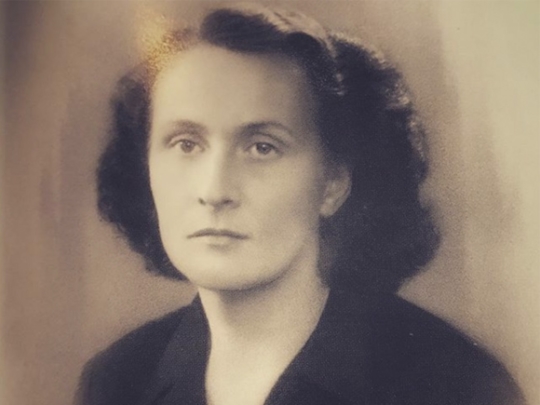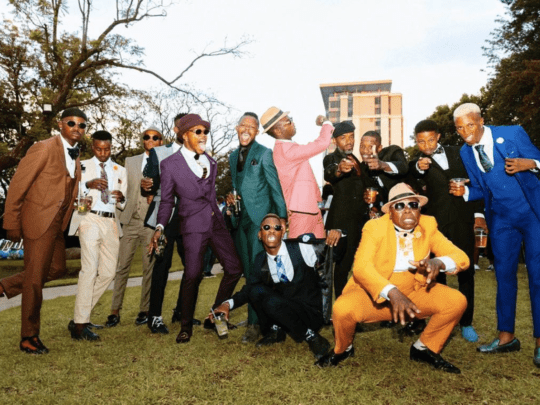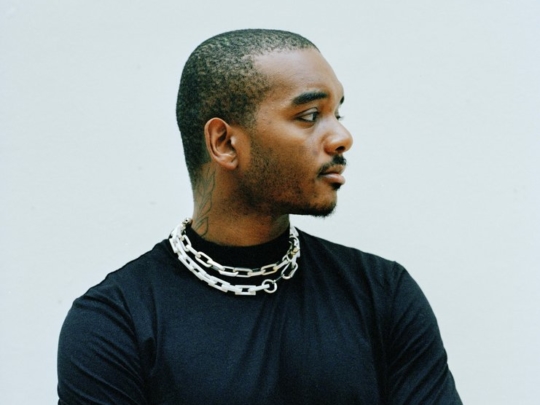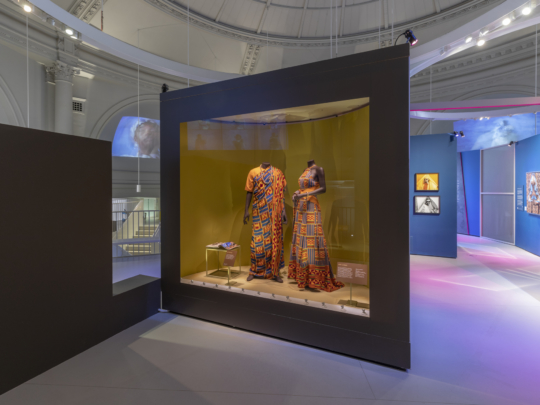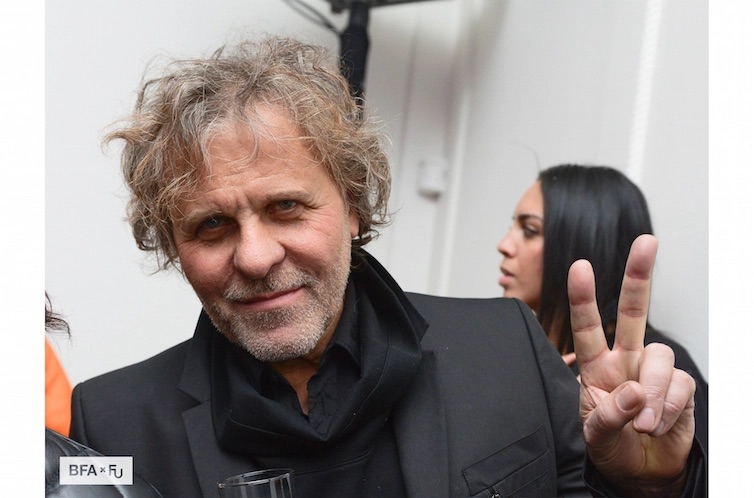A lot has changed at Diesel over the last three years. After the early 2000s, the It denim brand had seemingly fallen from grace, and all but disappeared from the stylish set’s line of sight. However, if anyone can revive a fashion label, it’s Diesel founder and OTB Group chairman Renzo Rosso. And in 2013, he did just that. It was then that Rosso tapped former Lady Gaga stylist and Mugler designer Nicola Formichetti to come on board as Diesel’s artistic director. Of course, Formichetti isn’t exactly known for his tame ideas, and since stepping into his role, he’s thrown a bondage party in Tokyo, sourced campaign stars from social media, and even advertised on Pornhub.com. Needless to say, Diesel is not only back on top, but it’s more boundary-pushing, trendsetting, and relevant than ever before. Here, Rosso speaks with Fashion Unfiltered about Diesel’s evolution, celebrity designers, and why, contrary to popular belief, he is not crazy.
Katharine K. Zarrella: Over the past three years, you’ve completely transformed Diesel. Can you speak a bit about the strategy behind the overhaul?
Renzo Rosso: Five or six years ago, I saw that Diesel had become tired. When I started this company, it was an incredible success. But I started to buy other brands [Maison Margiela, Viktor & Rolf, and Marni among them], and I left Diesel alone a little bit. Also, after so many years of success, the company needed a new structure. So I started to look for somebody to replace me. After three years, I found Nicola [Formichetti], and I was very much in love with him from the beginning. But he already had a couple of important jobs and wasn’t available, so I asked him, “Hey, man. Do you want to do something together?” And the thing we did was a project for China. He went to visit me in Italy and I showed him my company, my life, my history, and it was like a shock. He came to me and said, “Can I design?” And I said, “Are you sure?” And he said, “Yes, I like you very much.” And we shook hands. Because it was exactly what we were looking for. I wanted to upgrade the company, so we increased the quality, we increased the price, and we increased the distribution. Nicola also did the first advertising, and I’m very happy because it’s an interaction. It’s who we are—who we’d like to be. And now, the stores…
KZ: You just opened a new Madison Avenue store, which is quite a departure from the original Lexington Avenue Diesel outpost you bowed twenty years ago.
RR: When I was younger, I opened [the Lexington] store. That was my first store in the world. I was so in love with it because there was a little Levi’s store behind it, and I wanted to show how much better we were, so I just put my store in front of theirs. But I didn’t have enough product to fill the store, because it was very big—it was like 40,000 square feet. So we put a bar, we put a DJ, and once every two months we’d roll out the red carpet and do a party.
KZ: Nicola once told me that he loves you because no matter how crazy his ideas are, you always tell him to “go crazier.” Are you crazy?
RR: It’s not because I am crazy. I guess I can seem crazy to normal people, but for people that lead the actual [fashion] life, I am so normal. For example, now we advertise on Pornhub.com, but that’s reality. In this town tonight, 40 percent of the people will have sex off the Internet because it’s much easier to have sex on the Internet than it is to and find a girl, or somebody to be together with. So it’s not that we go to the porno channel with porno advertising, we just go there with sympathy and treat it like advertising in a magazine. We did it there because that’s the way to live today.
KZ: Have you seen results from it yet?
RR: Yes. Incredible. 31 percent increase.
KZ: Was this your idea or Nicola’s idea?
RR: No, [the team] came in with the idea. They said, “We have another stupid idea.” And I said, “Yeah? That’s fantastic.” I am lucky because I [work] with John Galliano [at Maison Margiela], with Nicola, with Viktor & Rolf, so many designers, so many young people. And when you [work] with young people, you have a lot of information. You have a lot of different creative ideas and different ways of thinking. This is why I am lucky, because I’m in a room with all this influence. They keep my mind young.
KZ: Diesel has dabbled with celebrity in interesting ways in the past. For instance, you surprised everyone by putting Joe Jonas in your latest campaign. How important do you think celebrity is to a brand like Diesel?
RR: Celebrities make the fun. Crazy celebrities help a lot in every single area. I think fashion is very good for them because it helps them [better express] who they are. But it’s also good for us, the fashion people. Celebrities are incredible interests to follow and to promote what we’re doing. It’s a good relationship between the two.
KZ: Would you ever collaborate with a celebrity on a Diesel collection?
RR: Mmm, that’s difficult. To design clothing, you need to have experience. You have to spend many years working before you’re ready to do something. Today, a rock star can do a beautiful sweatshirt and sell it. But to design a collection for many seasons, and to do a brand…that’s impossible [for a celebrity]. You need the design knowledge, and to become a designer, you have to suffer a lot. You have to try so many things—it takes a lot of experience. I believe in cobranding. If you want to do [a project] with a designer, that’s very easy. Or you can do it with an artist, like what [Takashi] Murakami did for Louis Vuitton. There, it worked very well, because it’s not that Murakami designed a label or a bag or a jacket. It was just a Murakami print. But the minute you ask a rock star or a movie star to design something…that’s difficult.
KZ: What do you think about the shifting fashion landscape?
RR: I am an entrepreneur, so it’s very different for me. Designers can say, “Okay, the consumer wants that during the show. Let’s deliver it immediately.” In reality, the process is a little bit different. The creativity’s different.
KZ: Do you think a change in the fashion cycle will impact Diesel’s future?
RR: I think Diesel’s future must be more global. Diesel doesn’t do a show. It’s important that Diesel does something closer to the reality of what’s going on on this earth.
KZ: Diesel doesn’t hold traditional shows for Nicola’s collections, but you do present Diesel Black Gold on the runway. Why is that?
RR: Black Gold is a little bit higher. Right now, we keep it separate. We have Andreas Melbostad at Diesel Black Gold and then we have Nicola—it’s a whole Diesel empire. Diesel started from the bottom and we decided to do something elevated because it’s very easy to do a second line when you’re on top, but to do the reverse is difficult. Nobody’s ever done it before. Diesel Black Gold has Diesel’s DNA, but I prefer to keep it separate, and to do a show because I want to work with people from [a different part] of the fashion world, with Marie-Amélie Sauvé [who styles the show], and with Andreas. After seven years, we’ve started to gain respect, and I can really see buyers coming to buy the collection.
KZ: I heard that Diesel is opening new stores in Asia as well as around the world. Can you tell me a bit about the retail rollout plan?
RR: We just did Madison Avenue, and we’ve started repositioning the other stores around the world. Because, after Nicola arrived, we elevated the status of the brand, and in some places, we’re on streets that are no longer good for us. For example, here we were on Fifth Avenue, and now we’re on Madison. In Rome, we moved from Via del Corso to Piazza di Spagna. We’ll be doing this in all the most important cities. We want to replicate the concept of the Madison store around the world, but I want to customize each store a little bit to gain the respect of the community. I think that’s nicer. People look for different things, and we’ll create special products for different stores.
KZ: The Diesel Website has gone through a huge evolution since Nicola came on board. How important has the Web experience become for Diesel?
RR: Today, Web is everything. When we do a sales campaign, 80 percent of the sales are from people who checked it out on the Web first. It doesn’t matter if [the actual sale] is done in the store or online, but 80 percent of [our customers] are going to check the Website. How easy is it when you’re home, you can check with your boyfriend what’s available, and then you can try it, just you and your boyfriend, without an assistant pushing you to buy something. You feel totally free. What you don’t like, you send back. The online is super nice.
KZ: Diesel has also just launched a magazine. Why does the brand need an editorial platform?
RR: Because all of our products have so many details, and we need [a space] to explain them. Also, our stores are a way to show our lifestyle, and and to educate and explain to people what is going on. It tells a story, and people love a story. The consumer needs the story–it’s so important. So this magazine that we’re doing online brings the consumer our heritage, our DNA, our story, our beautiful expertise. Sometimes we create a design maybe for joke, sometimes it’s a very strong idea, but it’s nice to communicate that.
KZ: You and Nicola have created an entire Diesel world, both online and off. Is that essential for a brand’s survival today?
RR: You have to do it because in any moment, someone can decide to buy, and they need to find the best way to achieve their desire. So the online is important, the stores are important—it’s multi-channel. But no matter what you’re doing, you have to put the consumer at the center of your attention. Your consumer is the most important thing, and you have to do the best you can to serve him or her.
